In 2012, Thonet still produces classic designs that made its name famous throughout the design world, but the company is certainly not short of fresh ideas and designs. At April’s Milan design fair, for example, Thonet displayed its current collection, including the 404 series modern beechwood chairs designed by Stefan Diez. In black, with its ‘tied’ leg, the black chair pictured is one of the contemporary highlights in the Thonet catalogue.
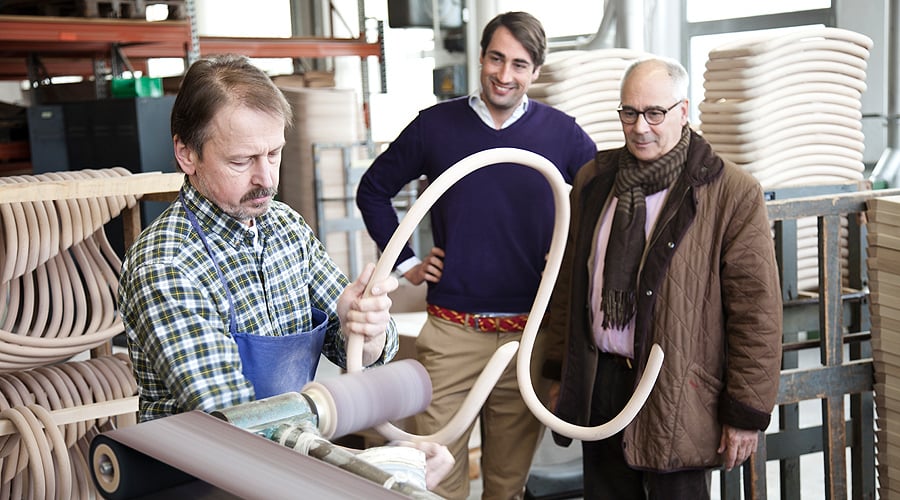
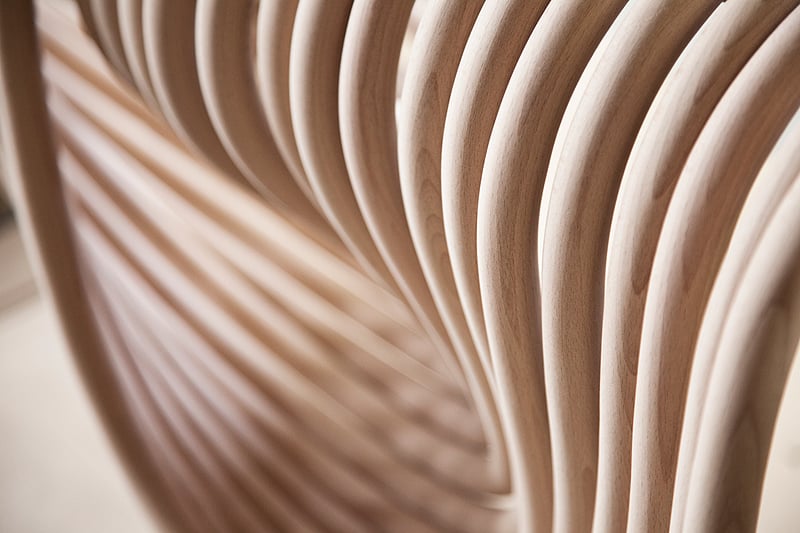
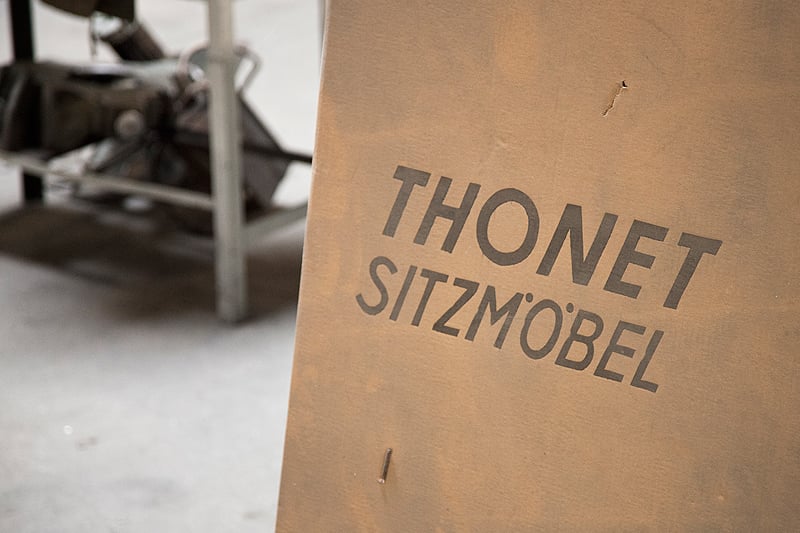
The story of the master carpenter Michael Thonet and his famous chairs was an example of the transition from craft to industrial production which typified the 19th Century. As early as the 1820s, Thonet was experimenting in his workshop in Boppard on the Rhine with a new wood-bending technology, but it was in 1859, with ‘Chair No. 14’ (later to become known as the famous ‘Vienna coffee house chair’), that the Thonet name entered the history books. For the first time, chair production used the division of labour, with work proceeding in set stages, which reduced the price significantly and – most importantly of all – the chair was comfortable!
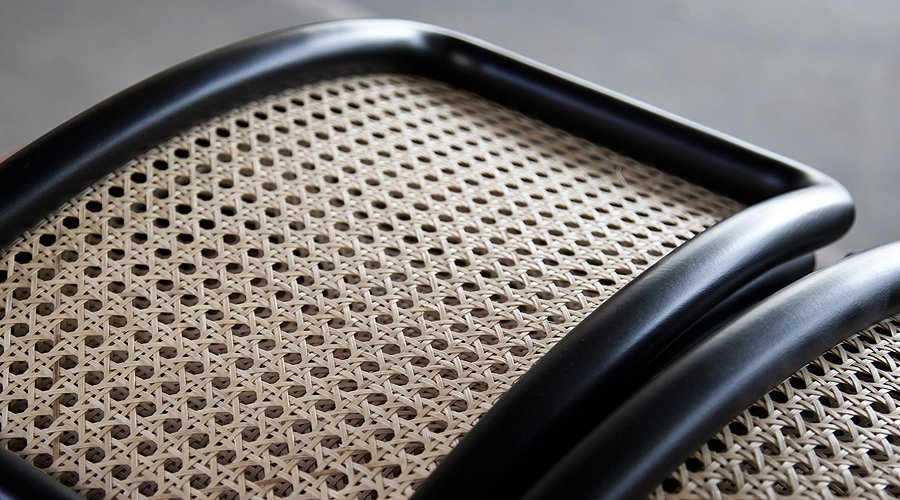
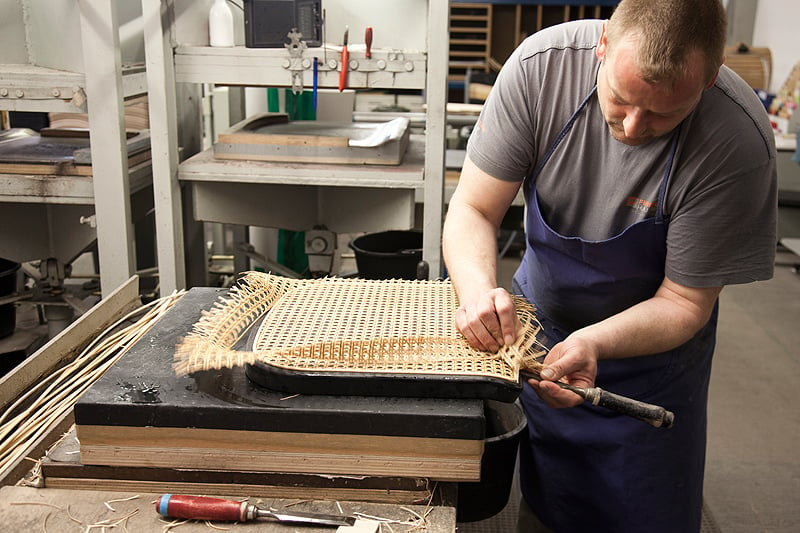
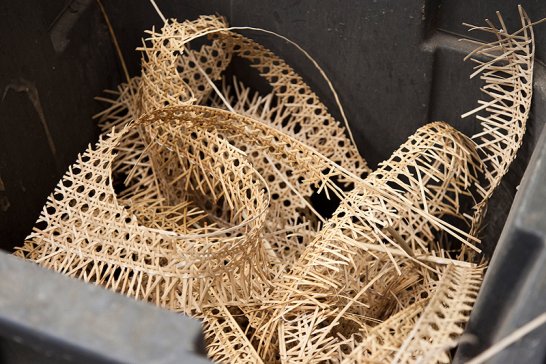
Today, the famous Thonet bentwood and tubular steel classics, along with the current collections, are produced in Frankenberg, where cutting-edge production techniques combine with specialist know-how, to create innovative products of the highest quality and durability.
Claus M. Thonet ran the family business until 2008; he now sits on the advisory board, and it was his son, Percy, who took us on a tour through the premises. We learnt that the bending of the wood is done in the same way today as it was in the time of Michael Thonet: first, the beech wood is softened with water vapour for several hours, then it is bent with extreme care and skill so as not to break it.
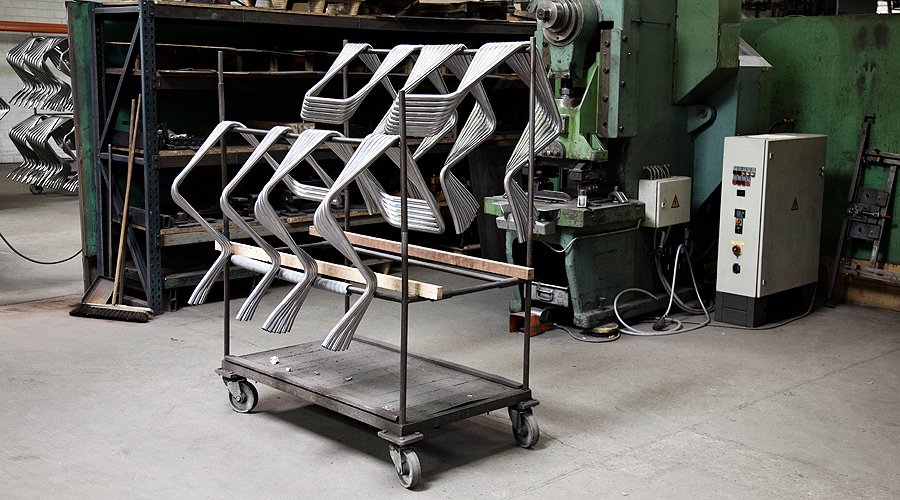
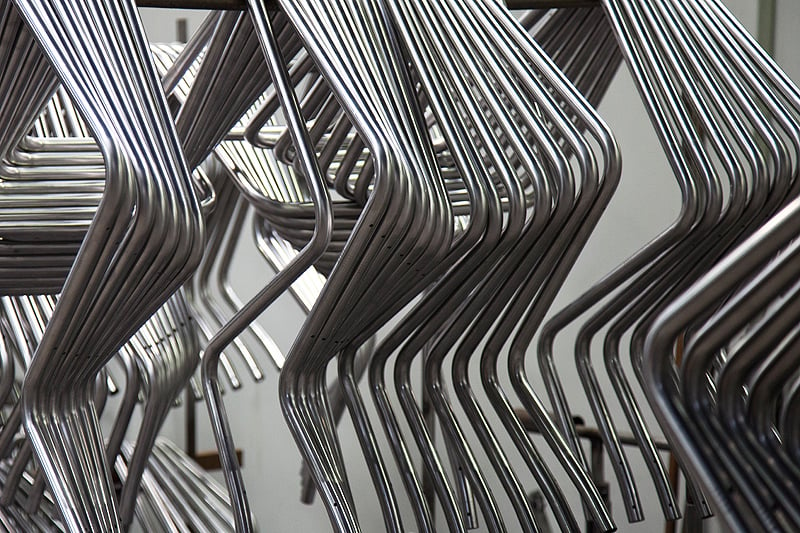
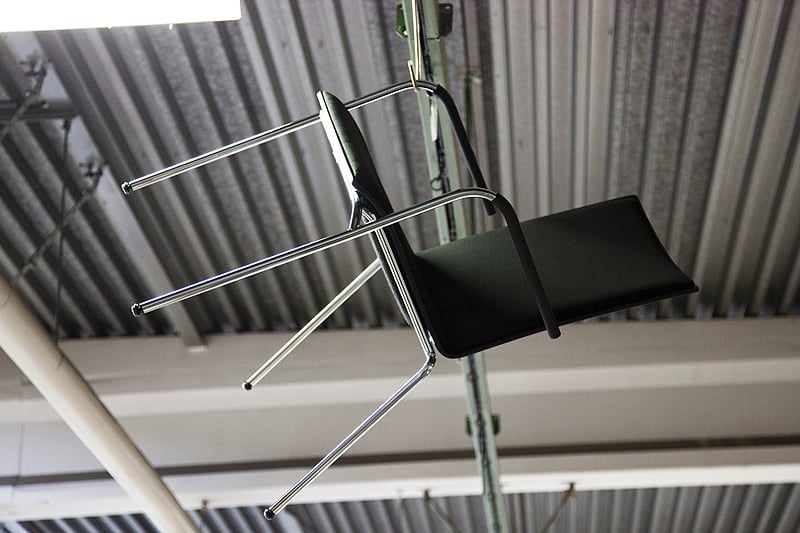
The personal influence of the Thonet family ensures a company that doesn’t simply focus on short-term fashions and quick profits. Instead, the enduring quality and designs of the Thonet products illustrate a corporate philosophy too rarely found in business today. But demand for high-quality products is growing, which is good news for Thonet.
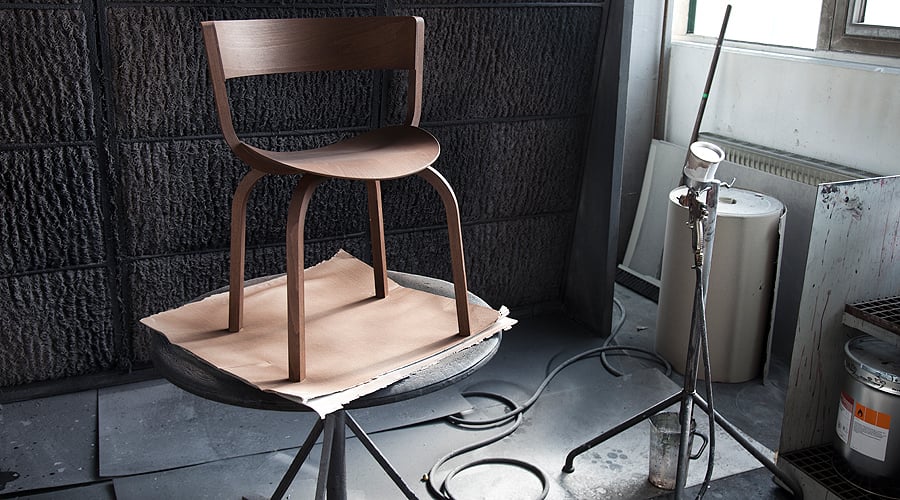
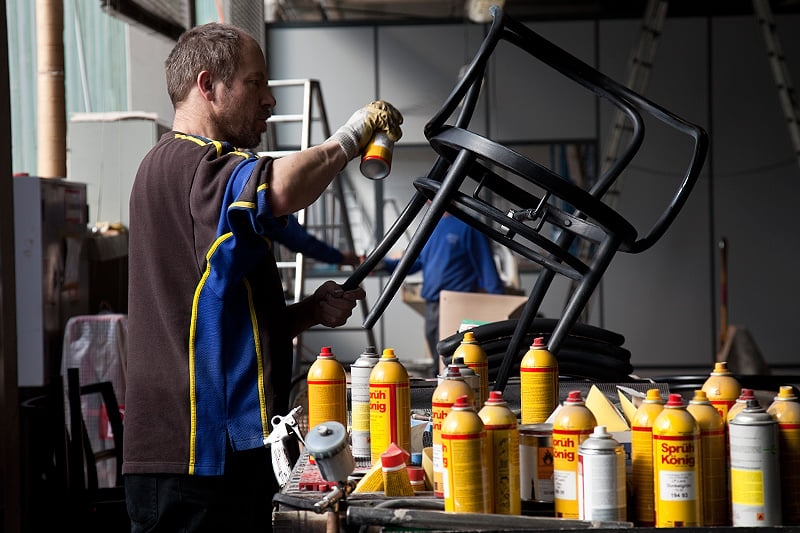
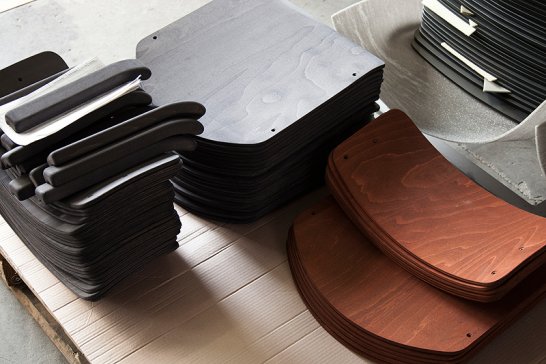
But it’s still important to evolve, design-wise: to keep up with the spirit of innovation by launching brand-new models. Hence design legends from the middle of the last century, names such as Egon Eiermann and Verner Panton, have influenced Thonet’s creations, while in recent decades there were famous names such as Lord Norman Foster whose radical ideas have been interpreted by Thonet’s own designers.
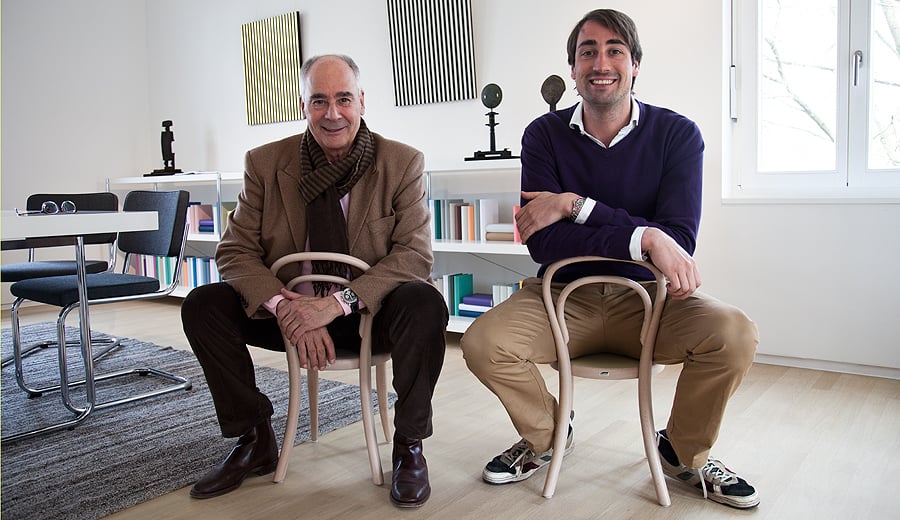
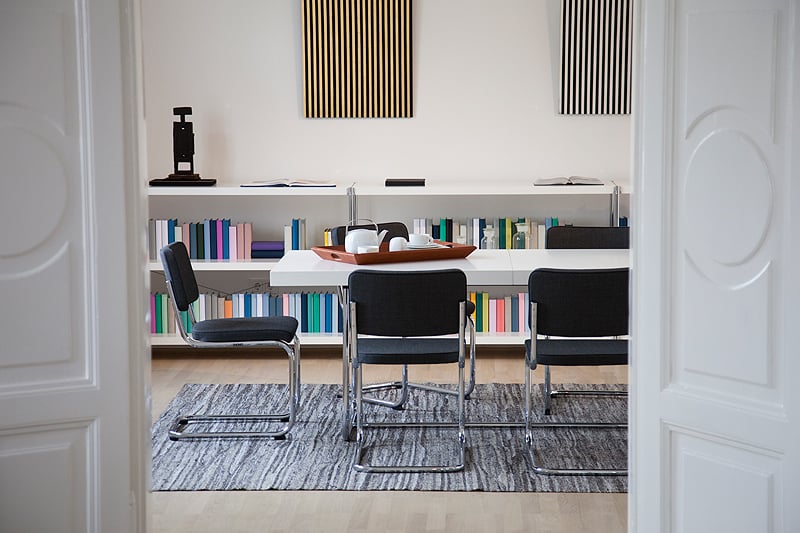
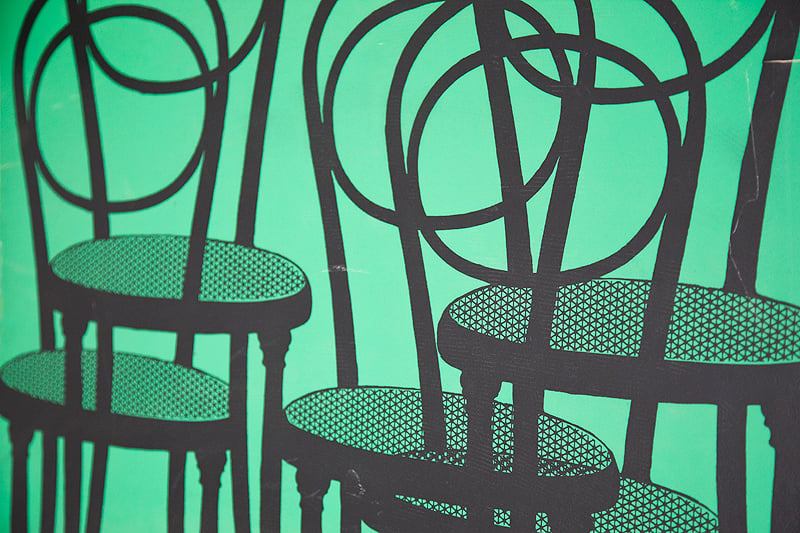
And it’s not only Thonet chairs which add beauty to private living spaces and public projects – there are furniture ranges of all kinds. You might find the Thonet plaque under the table tops and seats in the Bundestag or in the Musée d'Orsay in Paris, at the University of London or the Swiss Exchange. The greatest compliment for Thonet, however, is surely the many chairs and items of furniture, all over the world, that have been used for generations, passed down through families, collected and cherished.
Photos: Jan Baedeker


















